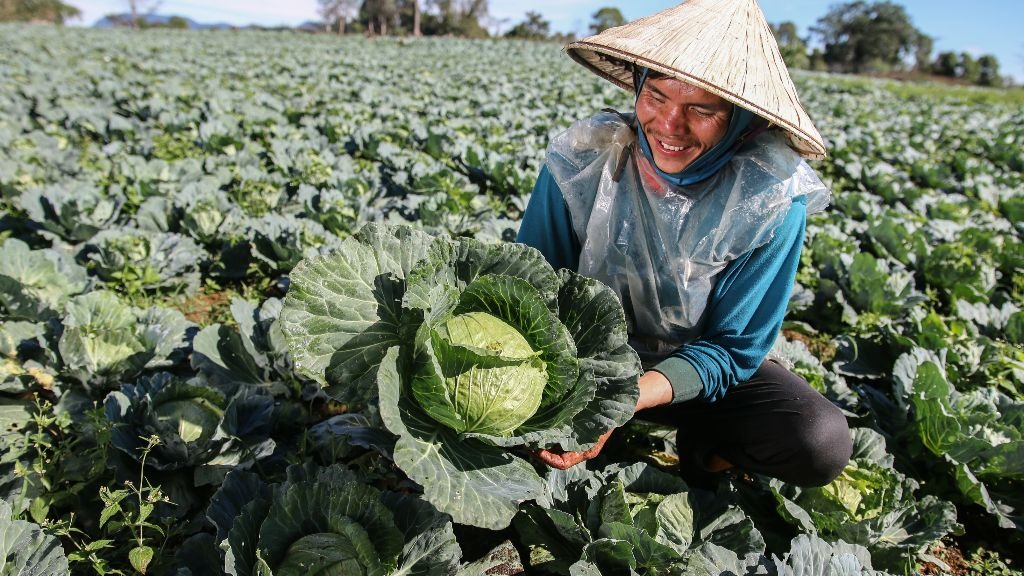A Strategy to Promote Sustainable Food in the Mekong

Farmers are starting to adopt climate-smart practices like using biochar and organic composts instead of chemical fertilizers. Photo: ADB.
The Siem Reap Action Plan will pave the way for the Greater Mekong Subregion to become a regional and global hub for good, sustainably produced food.
In a blog post, Pavit Ramachandran of the Asian Development Bank talks about the ambitious goal to transform the Greater Mekong Subregion (GMS) into a leading global supplier of safe and environment-friendly agriculture products.
In September 2017, GMS agriculture ministers endorsed a 5-year strategy and action plan [4] to build a region-wide food safety system that will be based on mutually recognized, science-based standards, product tracing, and information sharing, especially on hazard lists for key commodities.
Ramachandran cited the positive trends and developments in the subregion that support this strategy.
- Farmers are starting to adopt climate-smart practices like using biochar and organic composts instead of chemical fertilizers.
- Agribusiness companies are expanding to regional and global markets, and are helping to connect small farmers to opportunities beyond borders.
- Agricultural trade, inluding food products, in the GMS is growing rapidly, thanks to contract growing arrangements between countries, improved infrastructure, and increased foreign direct investment in agribusinesses.
- GMS consumers are increasingly looking for food that is safe and healthy, and environmentally friendly.
- GMS countries are exporting more value-added products rather than just raw materials.
"The subregion is strategically located close to major markets like the PRC, India, and Southeast Asia, which are expanding 5- to-10 times faster than the US or the EU," he adds. "Also, major transport corridors are linking the GMS to Central Asia, South Asia, and Europe."
Ramachandran also identified the challenges that lie ahead for the subregion.
- Food safety and quality assurance standards vary greatly across GMS countries.
- There is a lack of cold chains to manage perishable food and livestock.
- Farmers and producers have poor access to market information.
- There is a need for adquate food safety laboratories and experts at the border.
"The first order of the day for agriculture ministries implementing the Strategy and the Action Plan is to develop harmonized policies that facilitate production, trade, and investment in safe and environmentally friendly agro-based value chains," he says.
Read the full article published on 3 January 2018 at the Asian Development Blog [2].
Last Updated: 18 January 2018

